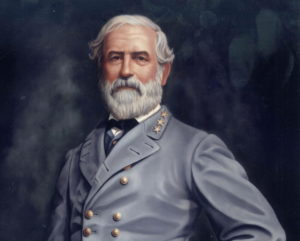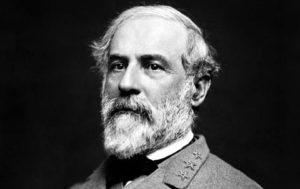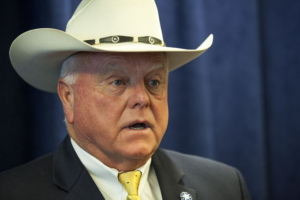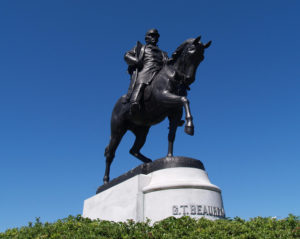Amarillo’s public school system governing board had a chance to do something courageous. Instead, in a 4-3 vote, it decided Monday night to take a significantly more timid path.
I’m still shaking my head in amazement.
The Amarillo Independent School District decided to remove “Robert E.” from the name of a school that carries the name of a Confederate States of America army general. Beginning with the 2018-19, the school formerly known as Robert E. Lee Elementary School will be known as Lee Elementary.
There. How does that go down?
AISD had decided to consider changing the name of the school in the wake of serious national discussion about whether Confederate figures should be memorialized at all. It all came to a nasty head this past summer in Charlottesville, Va., when white supremacists, Ku Klux Klansmen and neo-Nazis instigated a tragic riot when officials there wanted to remove a statue of Gen. Lee from a public park.
The debate found its way to Amarillo, where the school district is home to a school named after the same general. That school sits in the middle of a neighborhood comprising a significant African-American population.
Why the question? Well, Gen. Lee led an army against the United States of America during the Civil War. He fought to protect states’ right to allow the enslavement of human beings, who — I need to stipulate — were black Americans.
I favor removing Lee’s name from that public school building altogether. An AISD board majority feels differently.
Here is what Panhandle PBS posted on its Facebook page about AISD’s bizarre “compromise”:
Learn Here: Amarillo ISD’s board has voted 4-3 to drop “Robert E.” from the name to just Lee Elementary. Board members Jim Austin, Scott Flow, Cristy Wilkinson, and Renee McCown voted in favor of the partial name change, which was viewed as a “compromise” idea during the months of discussion. The motion was made by Cristy Wilkinson, and the change will go into effect in the 2018-2019 school year. Scott Flow seconded the motion.
James Allen, John Betancourt, and John Ben Blanchard voted against, wanting a complete name change after the surrounding neighborhood, Park Hills.
The vote came after an hour of public comment during which 25 people spoke on the issue, with only six in favor of keeping the name.
I am puzzled by this non-decision. How in the world does keeping the “Lee” on the building address the concerns of those who believe it somehow honors the name of a man who fought to destroy the United States — for the purpose of keeping human beings in bondage?
Did the slim school board majority conclude that hiding the full name of an enemy of the Union would somehow make it disappear all by itself?
I believe the AISD board of trustees has made a mistake.








